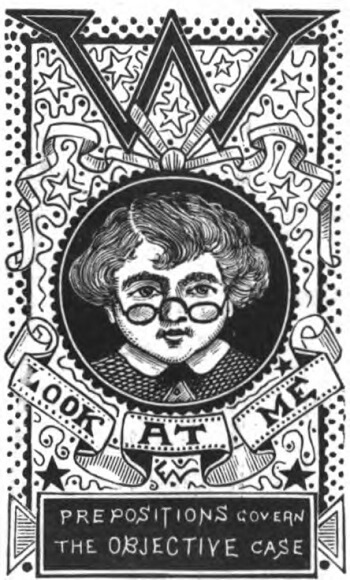Activity - Week 1: Find the Objective Case
Identify the objective case in Serjeant Parsing's story.
SAILOR-BOY
- Tom called for me, I went with him,
- We climbed upon a rock;
- There over the sea we looked for thee,
- Till seven of the clock.
- And then a white sail over the main,
- Brought back our sailor-boy again.
Activity - Week 2: Complete the Sentences
Fill up the blanks with a noun or pronoun, and say whether it will be a nominative (Subject form of I, you, he, she, it, we, they, who, whoever) or objective (Object form of me, you, her, him, it, us, them, whom, and whomever).
THE WALK
- ____________ went for a walk yesterday.
- ____________ walked through a dark ____________ under tall ____________.
- Suddenly, when ____________ were in a very lonely ____________,
- ____________ heard the steps of some ____________ crashing through the ____________.
- 'What can it be?' ____________ cried ____________ stopped to listen.
- The ____________ came nearer,
- two bright eyes gleamed at us through the ____________,
- and in another ____________ out bounded,
- with a deep ____________ that made echoes all round us.
- Our own dear old ____________, who had broken his chain,
- escaped from the ____________,
- and had come out to look for ____________.
 Grammar-Land
Grammar-Land
Grammar-Land
Grammar-Land


 Grammar-Land
Grammar-Land
Grammar-Land
Grammar-Land
